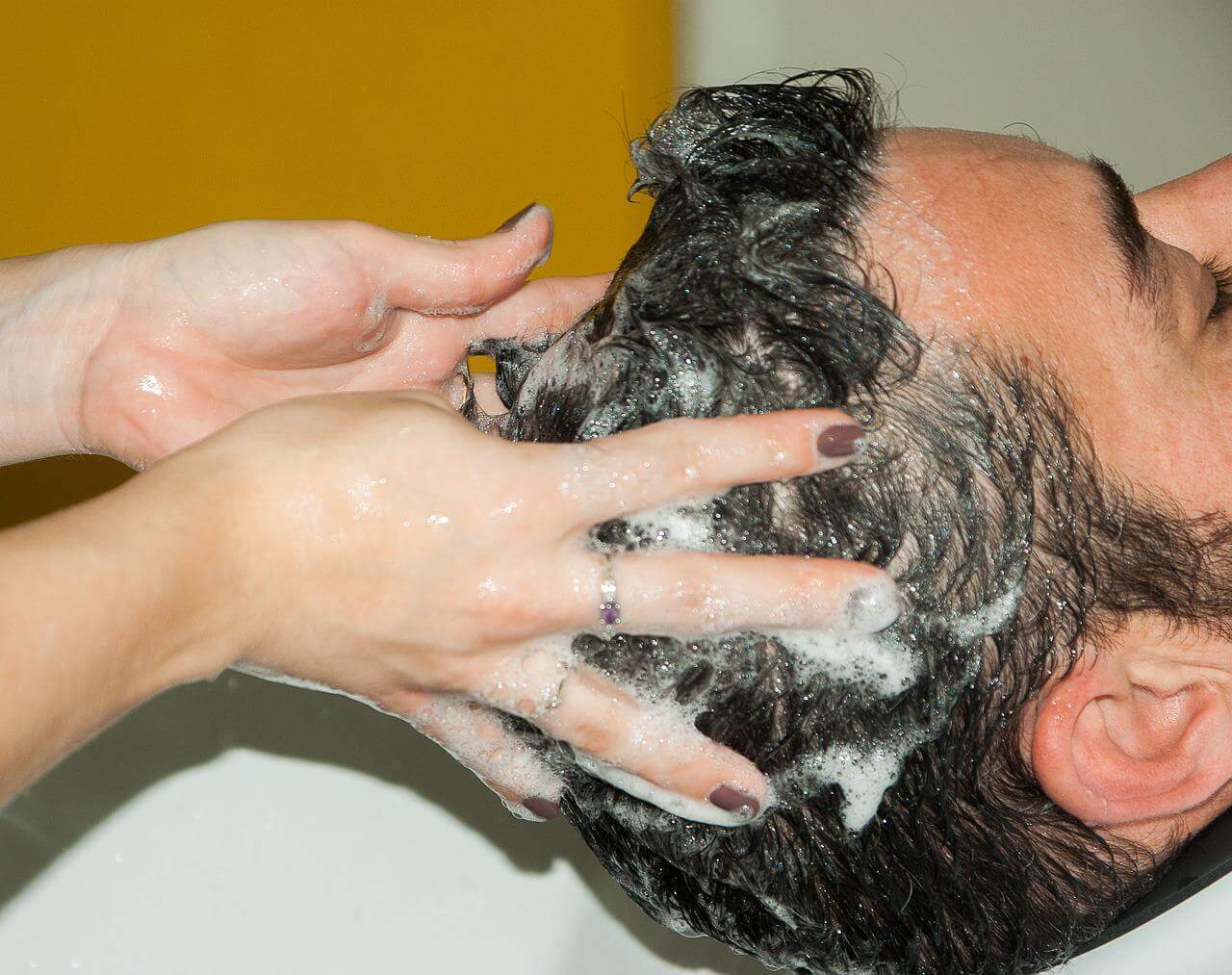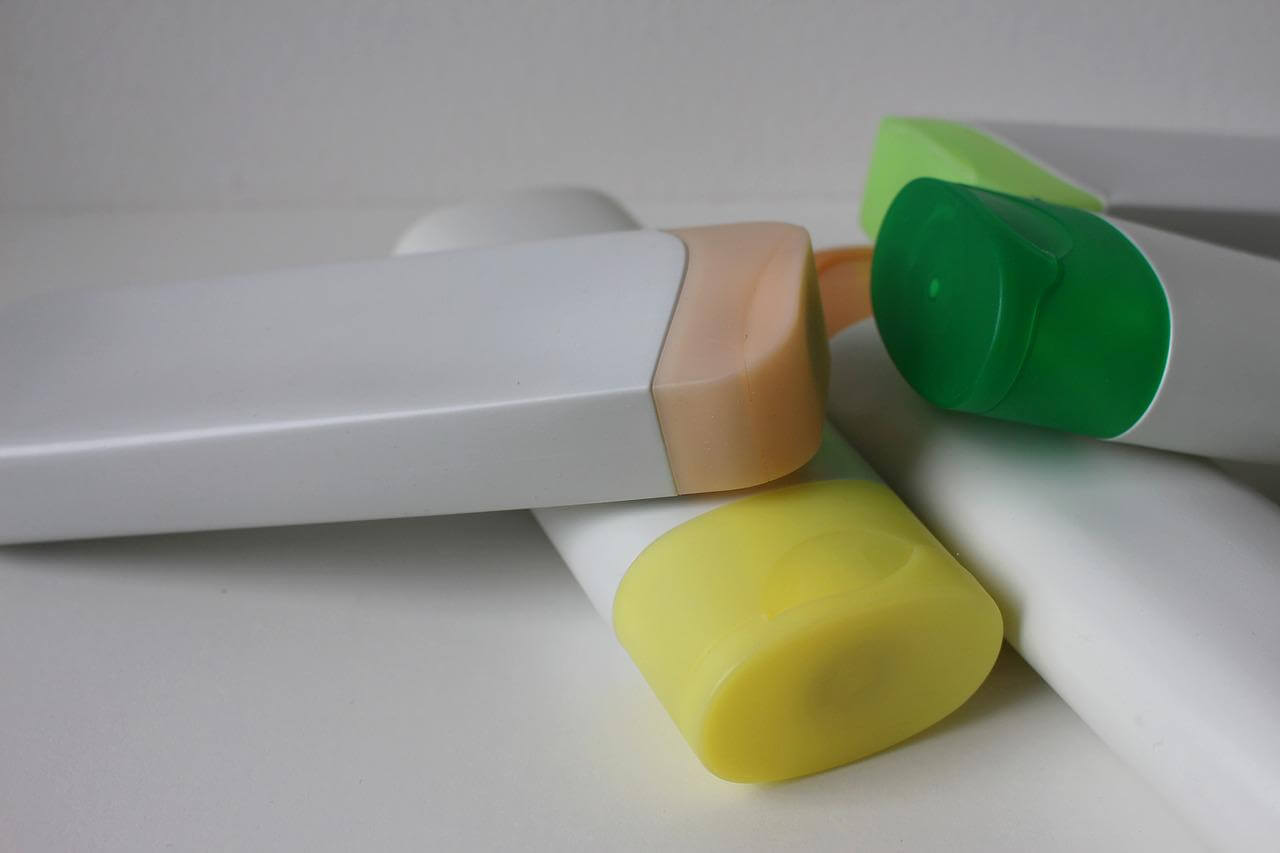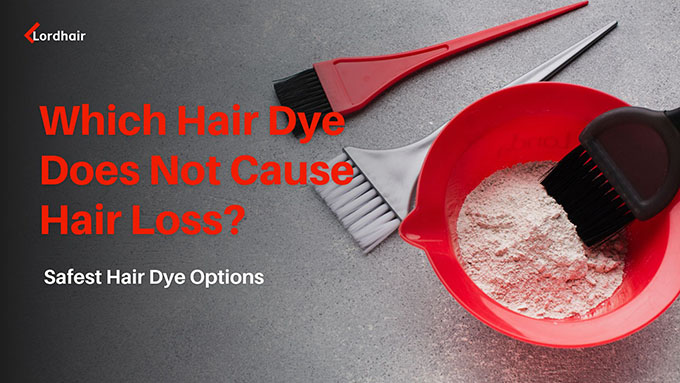Does Shampoo Cause Hair Loss?
- Written by Leo Lordhair
- | Published Jul 25, 2022
- |
- 7 min read
 Listen to the full text
Listen to the full text
Hair loss is something that everyone fears. It can strike at any time and for different reasons. For some people, it’s a genetic condition like alopecia or thinning hair from stress or hormonal issues. Fortunately, most cases of hair loss are temporary, but what about the more serious permanent hair loss?
There are many possible causes of losing your hair, including improper nutrition and stress. Shampoos have also been linked to hair thinning and breakage in some cases. Whether you’re trying to prevent hair loss or reverse its effects, there are a few things you should know about shampoos if you want to make sure they aren’t contributing to your problem. Keep reading to find out more!
Your hair collects dirt, dust, pollen, and other pollutants throughout the day. Shampoo's primary function is to clean the hair and remove dirt and oil from hair and scalp fibers.
Shampoo can also be used to improve hair quality and shine. But does shampoo cause hair loss? The Food and Drug Administration (FDA) documented 1,400 cases of hair cleansing products causing hair loss, breakage, balding, itching, and rashes in 2016. The FDA says it is unable to establish the cause of these reported adverse events because it lacks information and evidence.
In detail, this article examines the components in shampoo, hair loss causes, hair regrowth tips, and when to seek medical care.
Is Hair Falling Out Normal When Shampooing?
Normal hair loss ranges between 100 hair strands per day and 250 hair strands per day, according to studies. Your daily hair loss when you wash your hair ranges from 10 to 100 hair strands, but it might be different depending on how frequently you wash your hair and how you untangle it.
When you shave or trim your hair, you're simply removing the old hair to reveal the new hair growing beneath it. This process is known as hair shedding and hair regeneration.
When you wash your hair, it usually helps you expel the dormant hair strands that are ready to be released. That is how new hair is generated. However, if you lose more hair than usual, it may signal an issue.
However, you should not let hair loss stop you from washing your hair. It is crucial to keep your scalp and hair clean in order to eliminate dirt, grime, and product buildup. If you do not clean your scalp, dirt and dead skin cells might accumulate, leading to dandruff and hair loss.
Shampoo Ingredients That May Cause Hair Loss
The number of ingredients in shampoo can range from 10 to 30, comprising cleansing agents (surfactants), conditioning agents, special care substances, and additives. Sulfates and formaldehyde, among other things, have been associated with hair loss, but there is little clinical research to support this view.
Sodium Lauryl Sulfate and Laureth Sulfate
Sulfates are the most harmful of all chemicals found in hair care products. Sulfates are actually present in car wash soap and engine degreasers. Sodium lauryl sulfates and sodium laureth sulfates are two types of sulfates you should pay attention to.
When you watch any shampoo commercial, you see the actor vigorously working up a thick lather. Unfortunately, lather and foam are not as beneficial as you might expect. Our hair needs proteins to grow, and these damaged proteins strip away the hair's natural oils, resulting in dry, brittle hair.
Hair loss is said to be caused by sodium lauryl sulfate, an ingredient found in many shampoos and other personal care products. The theory is that the substance damages and irritates the hair follicles, resulting in breakage that resembles hair loss.
Chemical Fragrances
The aroma of shampoo is a vital factor in the decision to buy it. Fragrances in shampoo, like other beauty products, are chemical in nature. Although they smell nice, these fragrances may cause hormone imbalances. Studies have shown that hormone imbalance is a cause of hair loss.
Consider carefully before purchasing a shampoo that smells nice again! Strong chemical fragrances can cause a lot of hair damage.
Shop realistic wigs for men to overcome major hair damage
Sodium Chloride
Scientists concur that the chemical makeup of salt is detrimental to hair health. However, it may boost our immune system. Make sure your shampoo does not have too much sodium chloride. If you believe choosing a chemical-free shampoo is too much work, prepare to wear hair wigs for men.
Parabens
The presence of preservatives, such as parabens in shampoo, may indicate the presence of harmful bacteria. However, beware of parabens such as methylparaben and propylparaben, which are listed in the ingredients. Parabens can similarly affect hormones as fragrances, but they are also associated with breast cancer.
Propylene Glycol
Using propylene glycol, shampoo can maintain its consistency, but it also aids the scalp in absorbing other chemicals. Because of this, we are discussing a substance that will drive all of the horrible stuff into your body!
It is frightening to think about what these chemicals might do to your skin if they can negatively affect your hair health. These chemicals are toxic and cause more than hair loss.
Diethanolamine (DEA) and Triethanolamine (TEA)
Dry, brittle hair can be caused by the destruction of keratin, a key component of hair, by two chemicals, Triethanolamine and Diethanolamine.
Because women shampoo their hair more often and use a variety of hair products, they must ensure that their products do not contain harmful chemicals. Are you battling to maintain your real hair after using harmful hair products? Our hair wigs for women can help you fight back while your hair recovers.
Formaldehyde
Formaldehyde is the most harmful of all the shampoos' harmful chemicals. It has been proven to be absorbed through the scalp during animal testing and is therefore also known as a human carcinogen. This shampoo ingredient is common and is an allergen and irritant to some people.
Formaldehyde might be present in some shampoo formulations in large amounts, resulting in eye irritation and in rare cases, nasal discharge. According to leading hair experts, hair loss and vomiting have been reported as a result of using hair care products containing Formaldehyde in large amounts. Thus, be aware of this hair-destructive chemical in your shampoo!
Hair integration systems are perfect for hair thinning in women
Alcohol
There is alcohol in my shampoo? You might be taken aback to discover. The answer is yes, as alcohol is a common ingredient in low-cost shampoos.
Some shampoos (like Cetearyl and Stearyl alcohols) contain alcohols that are not harmful to the hair; however, isopropanol and propanol, which are found in some shampoos, can make your hair look lifeless and cause hair loss.
Formaldehyde, at low concentrations, is considered safe. It is present in cosmetics to kill bacteria and prolong shelf life. However, the International Agency for Cancer Research categorises formaldehyde as a group 1 human carcinogen at high levels. Several formaldehyde donors are present in cosmetics, and formaldehyde is released slowly from them.
You shouldn't be directly exposed to high levels of formaldehyde if you shampoo your hair daily. However, formaldehyde donors from hair products can be released into the air, which, at certain levels, may irritate your nose, eyes, and lungs, leading to allergic dermatitis or skin sensitivity. Hair salons and people who use hair straightening or smoothing solutions may be at a higher risk of this type of exposure.
Check the shampoo label to ensure that these alcohol compounds aren't present!

FDA Recommendations on Shampoo-Related Hair Damage
The FDA suggests that you stop using the product immediately if you start using it and experience hair loss, and contact your healthcare provider.
It's a good idea to read labels to keep your hair healthy. Sulfates and other harsh chemicals, although the names may be confusing, can be found in the listed ingredients:
- Methylene glycol
- Formalin
- Formaldehyde
- DMDM hydantoin
It's always worthwhile to check out the ingredients list, even if the item advertises 'formaldehyde- or sulfate-free.'
Other Hair Loss Causes to Rule Out
Smoking, poor nutrition, and exposure to excessive sun and wind can all negatively impact existing hair and impede hair growth. Inflammatory conditions can play a role in hair loss, in addition to a person's age and race. Wet brushing, hair drying, and hair straightening or curling may also damage the hair.
Genetic predisposition to hair loss may be present in some individuals. This might be more prevalent in people with autoimmune diseases such as:
- Thyroid disease
- Asthma
- Type 1 diabetes
- Hay fever
- Vitiligo
- Down syndrome
- Rheumatoid arthritis
A person with an autoimmune disease such as alopecia areata has an immune system malfunction that causes hair to fall out in spots on the scalp and other areas of the body. Stress, menopause, and medication side effects can also cause certain types of hair loss.
Discover our newest collection of toupees to recover from baldness
Shampoo and Hair Growth Care
You should maintain excellent hair care by considering your hair type and the results you want. Those with oily hair may need to shampoo daily, but those with dry hair may wash their hair less often. It's important to talk with your doctor or dermatologist before purchasing shampoo to ensure you're buying the right one. You can maintain healthy hair by following these tips:
- Use a gentle shampoo daily, which is less irritating to the shaft, to shampoo.
- Rub the shampoo into wet hair using your fingertips.
- Cut down perming.
- Avoid multiple applications of permanent dyes.
- Avoid frequent bleaching
- When dry, comb the hair root to the tip.
- Wide-toothed combs and brushes with rounded tips should be used.
- Avoid frequent use of hair dryers
Hair Loss and Nutrition
Nutrition is essential for both health and hair regrowth. Iron, zinc, biotin, niacin, fatty acids, selenium, vitamin D, and amino acids, among other nutrients, are critical. Nutrient deficiencies may cause hair loss if they are not adequately supplied. You will usually get all the nutrients you need from a diet comprised of whole foods. The following items are all examples of whole foods:
- Whole grains (whole grain cereals, oats, quinoa)
- Protein (meat, fish, poultry, legumes)
- Healthy fats (seeds, oils, nuts, avocado)
- Vegetables
- Fruits
- Dairy Products
You may require an assessment for nutrient deficiencies and a dietitian-guided supplementation program if you are unable to get enough nutrients through diet.

When to Contact a Healthcare Provider
Hair loss is a natural part of the hair cycle, but excessive hair loss is not. If you think that your shampoo is resulting in hair loss, stop using it and consult your physician.
Are you having problems keeping your hair on your head? A dermatologist who specializes in hair loss can help you determine the cause and create a treatment plan tailored to your needs.
Does Shampoo Cause Hair Loss?
Yes, a lot of times. Certain ingredients in hair products may cause hair loss, according to FDA reports. However, the FDA is unable to investigate the claims because they are lacking vital information. Hair products may adversely affect the hair if they include formaldehyde or sulfates, for example.
Hair health comprises daily hair treatments, external factors, immune health, and nutrition. Furthermore, if you have recently used a product and noticed hair loss or scalp problems, you should see a doctor and report it.
Investigating products and reading the fine lines may be difficult if you are a conscious consumer. It is unclear whether sulfates or formaldehyde cause hair loss, but heavy exposure to either of them is probably not beneficial.
It is okay to lose a small amount of hair each day, but not if you are losing large amounts. If you are not sure why you are losing your hair, see a dermatologist who specializes in hair loss for help. In most cases, hair regrowth can be stimulated.
Discover our recent blogs:
ForHims for hair loss: Everything covered
Discover men's glued-on hairpieces at the best prices
Understanding bald spots on the crown of the head
Discover our newest product pages:
Shop wigs for men in 2022
Discover hairpieces for thinning hair
Discover hairpieces for alopecia



